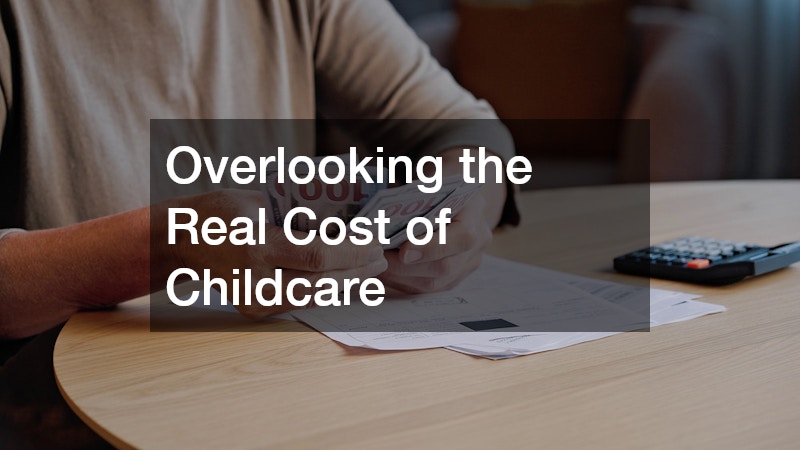
Divorce is an emotionally charged process that can leave even the most rational individual reeling. The separation of two lives that were once intimately woven together is bound to stir a mix of emotions, ranging from sadness to confusion, and even anger. Alongside the emotional turmoil, there are logistical, financial, and legal matters that need careful navigation. Without proper guidance and a strategic approach, individuals can make significant missteps that could complicate not only their divorce proceedings but also their future well-being and that of their children. Understanding what not to do during a divorce is crucial to maintaining some form of stability during this time.
Consider that each decision made during a divorce is like a stone thrown into a pond; the ripples can extend far beyond the initial splash. It’s easy to let emotions dictate actions, but this often leads to choices that only complicate matters. Maintaining a grounded mindset and seeking professional guidance can smooth the path ahead. Engaging a competent divorce lawyer and consulting with divorce and family law attorneys provides valuable insight into avoiding the most damaging missteps. In the heat of the moment, rash decisions may seem attractive, but they often have long-lasting impacts that reach far beyond the courtroom.
Divorce not only affects the spouses, but it reverberates through families and alters children’s perceived sense of stability. Discussions on co-parenting, child custody, and the rearrangement of financial responsibilities are challenging. Yet, learning how to approach these moments wisely can prevent further strain. Mistakes in these areas can lead to prolonged disputes, increased legal fees, and an environment unfriendly to resolution. By staying focused on thoughtful, forward-looking actions, families can prioritize healing and long-term well-being—especially for the children involved.
Undermining Co-Parenting With Rash Decisions

One of the most detrimental errors during a divorce is making hasty decisions regarding co-parenting. When couples decide to part ways, the impulse to make quick adjustments can result in choices that aren’t in the children’s best interest. Divorce and family law attorneys emphasize that building a stable co-parenting plan requires foresight and mutual respect, not reactive measures rooted in anger or frustration. Keeping the children’s needs at the center of all decision-making is essential.
Reacting impulsively might mean hastily assuming new roles or altering environments for children that disrupt their sense of security. For example, suddenly changing schools or living arrangements without carefully considering how the children will adapt can create instability. Maintaining consistent routines and communicating clearly about transitions provides a foundation of trust and comfort, which is key to helping children adjust.
In addition, respectful collaboration between parents is critical. High emotions can lead to treating children as leverage in conflicts, which can severely harm parent-child relationships. Parents should commit to resolving co-parenting disagreements peacefully, with help from mediators or professionals skilled in family dynamics and conflict resolution when needed.
Failing to Choose the Right Legal Advocate
Choosing the right legal advocate is crucial in navigating the complexities of divorce. According to numerous divorce lawyers, one of the foremost errors is rushing into a decision about legal representation. Many people underestimate the importance of their legal advocate’s expertise until they are enmeshed in a complicated scenario. Understanding what not to do during a divorce can help mitigate these difficulties by emphasizing the need for diligent research and selection.
The role of a divorce lawyer extends beyond mere legal paperwork; it includes providing strategic advice and emotional support throughout the process. Selecting someone who aligns with your goals and values is critical. A mismatch can lead to increased frustration, misunderstandings, and could ultimately impact the divorce outcome negatively.
Experience and specialization are factors that should weigh heavily during the selection process. Opting for a lawyer with a track record in family law, one who has previously handled cases similar to yours successfully, is invaluable. Taking the time to schedule consultations, ask pertinent questions, and check references can prevent regrettable choices and ensure competent representation, assisting you effectively in every step of the divorce proceedings.
Letting Emotions Override Practical Strategy
Divorce is inherently emotional, but allowing these emotions to overrule practicality can be detrimental. A common pitfall is to let anger or resentment guide financial and legal decisions, which can lead to unnecessarily prolonged litigation and poor outcomes. It’s essential to step back and consider the bigger picture to truly understand what not to do during a divorce.
Engaging with a reputable law firm can provide the practical oversight needed during such an emotionally fraught time. They bring an objective perspective, helping clients focus on long-term consequences rather than short-term emotional gratification. By focusing on practical strategy, individuals can ensure decisions are made in their best interest and that of their families.
Open, honest discussions with legal counsel about emotionally charged topics can lead to more informed decisions. This dialogue should encompass all aspects, from asset division to financial planning and custody arrangements. Professionals in the field can advise on what not to do during a divorce, keeping proceedings on track and within the required legal framework, mitigating emotional decision-making.
Overlooking the Real Cost of Childcare

A major oversight during divorce proceedings is underestimating the real cost of childcare, which can significantly impact financial arrangements. Often, attention is concentrated on immediate concerns, causing the long-term financial planning to take a backseat. Recognizing what not to do during a divorce means planning adequately for foreseeable expenses, especially when children are involved.
Early childhood centers and preschools add a layer of financial consideration that must be managed collaboratively. The cost can vary based on location, the type of services offered, and the needs of the child. Ignoring these can result in financial strain and heated disputes over the fair distribution of childcare expenses.
A forward-thinking approach, including realistic appraisals of costs associated with childcare and other educational needs, allows both parents to prepare for future expenditures. Clear agreements should be articulated, documented, and mediated where possible to avoid later conflicts. Open lines of communication and ongoing reviews of financial commitments ensure that both parties remain aware of their responsibilities.
Ignoring Education Plans
Education plans for children are often overlooked in the chaos of divorce. It is crucial to align on potential changes in educational paths, including private schools, that parents might consider for their children. Knowing what not to do during a divorce involves making informed decisions regarding a child’s education that work for both parents in the long run.
Disputes may arise regarding tuition payments, the andterry of in which the children are to be educated, and the anticipated contributions from each parent. Ignoring these significant factors can result in strain on parental relationships and emotional distress amongst children. Aligning on a comprehensive plan preemptively can mitigate these issues.
Divorce and family law attorneys emphasize the value of proactive communication in addressing educational objectives. Ensuring both parties articulate their aspirations and come to a consensus can subsequently prevent long-standing educational disputes. Defining clear education strategies forms a cornerstone of the broader family restructuring effort.
Delaying Healthcare Choices
Healthcare considerations can become secondary to more pressing concerns during divorce, yet they play a pivotal role in securing a stable future for children. Issues such as routine doctor visits, prescription medication, and elective healthcare needs, such as braces, must be addressed comprehensively. Overlooking or delaying these choices can create complications that are difficult to untangle later, making it clear that postponing critical decisions can have lasting repercussions.
Taking a proactive stance in outlining healthcare responsibilities ensures that both parents understand their obligations and contributions. This not only helps to prevent conflict but also guarantees that a reliable healthcare strategy is in place. Divorce lawyers often recommend incorporating detailed healthcare agreements into the final settlement to reduce the risk of future disputes.
Clear documentation and open communication about medical needs create a foundation for shared responsibility and financial accountability. Establishing this structure not only meets the children’s current healthcare needs but also prepares both parents to handle unexpected medical issues. Planning ahead in this area reflects a thoughtful approach that avoids common pitfalls and supports a smoother transition for everyone involved.
Making Quick Financial Fixes

Amid the turmoil of divorce, the instinct to make quick financial fixes often leads to suboptimal decisions like hastily liquidating assets for immediate liquidity. Selling assets such as jewelry might offer short-term relief, but can weaken long-term financial stability. While the temptation to sell jewelry quickly may feel like a solution, doing so without clarity on ownership or legal guidance can complicate property division and lead to disputes. Steering clear of these rash choices is vital to protecting your future financial health and ensuring you’re not trading temporary comfort for lasting consequences.
Remaining focused on a bigger-picture financial plan, even in the face of emotional stress, is key. Financial advisors and experienced divorce attorneys often urge clients to think several steps ahead and avoid decisions made purely out of panic or urgency. Careful planning and patience during this time will serve both parties better than shortcuts that seem appealing in the moment.
Sound financial planning requires a strategic overview of assets and liabilities. Consulting with financial advisors can provide valuable direction and help in crafting a comprehensive financial strategy. These experts assist in understanding how best to leverage existing assets without sacrificing future economic welfare.
Before making decisions about asset liquidation, consider the broader implications. While there might be a perceived benefit in immediate liquidity, these funds can often be better utilized or protected through strategic planning. Crafting a well-thought-out financial strategy ensures sustainability and stability beyond the immediate scope of the divorce.
Skipping Professional Help
Divorce is fraught with complexities where professional support is invaluable. Skipping professional assistance is a clear illustration of what not to do during a divorce. Professional support, ranging from legal service and financial advice to therapy, provides critical guidance in navigating this intricate process.
Consulting a specialized legal service ensures that all facets of the case adhere to legal protocols and reflect the best interests of the client and their children. This expertise translates into well-advised, measured decisions, enhancing the likelihood of a favorable outcome. Avoiding this support can lead to detrimental oversights that complicate or even nullify divorce agreements.
Mental health professionals also play an essential role in offering emotional support, aiding individuals in managing stress and building resilience. Professional guidance is particularly beneficial in managing co-parenting challenges, helping sustain a focus on prioritizing the children’s well-being amidst high tension. Utilizing professional services provides a strong support network that facilitates smoother transitions and mitigates complications along the divorce journey.
Hiding Debt or Avoiding Conversations About Money
Financial transparency is vital for equitable divorce settlements. Avoiding discussions about money or hiding debt is a tactical error that underscores what not to do during a divorce. Financial dishonesty complicates settlement negotiations and can result in legal repercussions when uncovered.
Collating comprehensive financial documentation and working with financial advisors provides clarity on the actual financial situation, enabling informed negotiations. Divorce lawyers assert that forthrightness concerning financial status is crucial in devising sustainable financial plans. Missing this step can lead to unequal asset distribution, costly legal battles, and ongoing mistrust, which perpetuates stress long after the divorce is finalized.
Involving a bankruptcy agency can provide strategic advice for debt management during divorce proceedings. They offer insights into handling accumulated debt and can guide decisions that prevent financial ruin. This proactive disclosure supports fair settlements and the holistic restructuring of finances for post-divorce life.
Forgetting the Impact of Routine Disruption

Divorce inevitably disrupts established routines, but overlooking the impact of these disruptions signals what not to do during a divorce. Children, especially, thrive on routine; expansions in their daily activities, such as revolving between two homes or adjusting to new preschool environments, can heavily influence their emotional stability and development.
Preserving elements of a child’s routine amidst divorce proceedings can significantly aid in protecting their psychological well-being. Arranging consistent visitation schedules and ensuring open communication about forthcoming changes form the essence of this stability. It’s crucial that both parents understand and mitigate potential adverse effects of disrupted routines.
Open discussions aided by child psychologists or family counselors can provide frameworks for minimizing routine disruptions. These professionals can offer strategies for maintaining balance and emphasizing continuity regardless of the parental split. Ultimately, fostering an environment with familiar routines and secure parental interactions safeguards children’s emotional health and eases their transition across this period.
In conclusion, comprehending what not to do during a divorce is integral to navigating this challenging life transition effectively. Each decision made has the potential to greatly influence both the immediate and distant future for all involved parties. As highlighted within each section, emotional impulsivity, inadequate legal guidance, financial disarray, and lack of comprehensive planning often contribute to straining already fragile relationships. Practical, informed decisions foster healthier transitional processes and provide stronger foundations for future family dynamics.
Unraveling a marriage is rarely straightforward; it requires careful consideration of legal, financial, and emotional factors to forge a more promising path ahead. Seeking expert guidance from divorce and family law attorneys, leaning on divorce lawyers, and drawing upon the support of a trusted law firm ensures that each step taken aligns with long-term goals rather than short-term fixes. Professional insights into childcare, education planning, healthcare decisions, and financial management play crucial roles in stabilizing the family unit.
Every step in a divorce must be calculated with forethought and clarity of purpose; knowing what not to do during a divorce aids in making choices that uphold well-being over conflict. Through collaborative planning, honoring commitments, and engaging professional services, families can better manage transitions during divorce. The importance of crafting informed strategies and approaching each decision with deliberation ultimately paves the way toward healing and restoration in the wake of marital dissolution.



